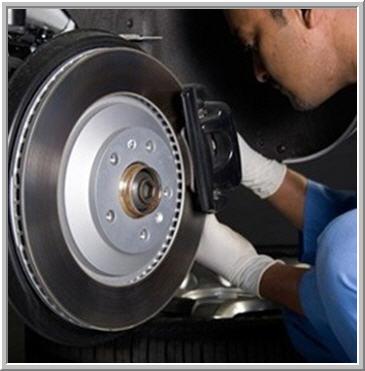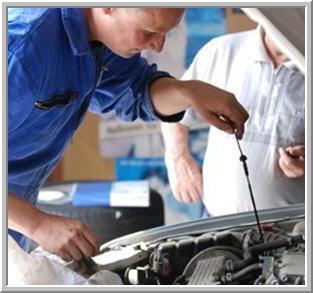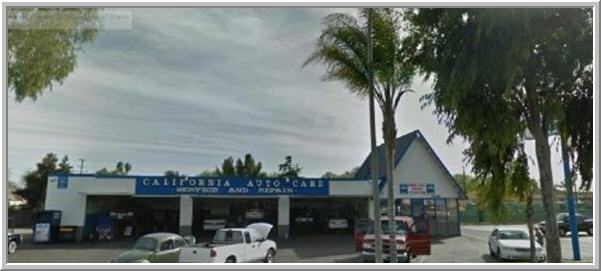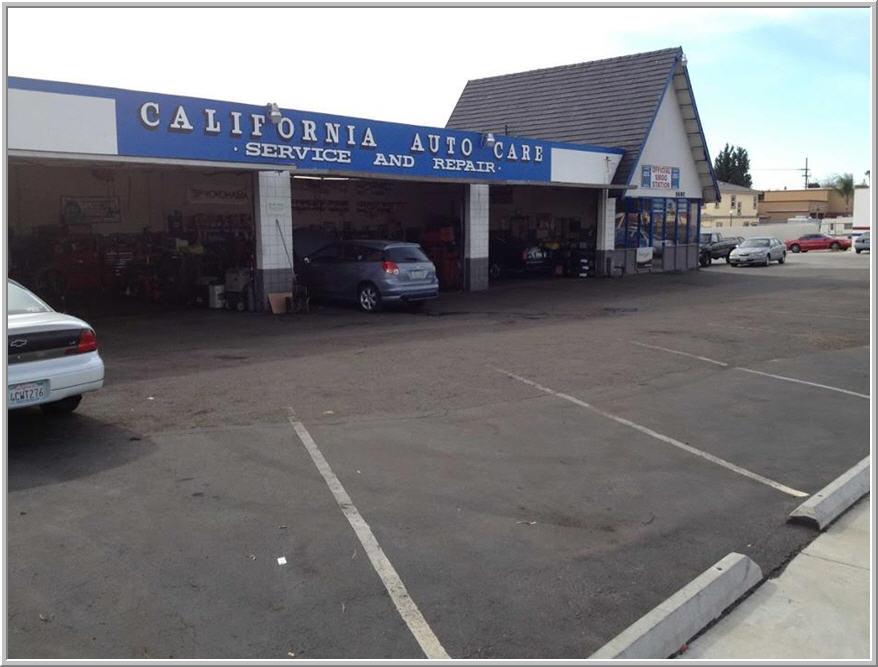Tires are consumable components, so it's important to give them a once over before you subject your vehicle to a government-mandated inspection. Taking your chances with bad tires isn't something you should do because they will cause the vehicle to fail the check.
One of the things a mechanic will scrutinize when performing a vehicle inspection is your brake system. Brake pads, in particular, will need to be carefully checked, especially if you've put a lot of miles on your car or truck.
One of the things that a vehicle inspector will scrutinize is the suspension system of your vehicle. As such, you can expect him or her to not only check the shock absorbers but to also look for worn components such as tie rod ends and suspension bushings.
If you smell fumes in your vehicle, it is very important to have the exhaust system inspected as soon as possible. Chances are there's a leak somewhere that's allowing exhaust gases to escape the pipes and enter the vehicle's cabin.
Among the most important electrical components your vehicle is fitted with are its headlights. You should always make sure that all its functions–low beam, high beam, and park–are working before you take the vehicle in for an official inspection.
Although a car's shock absorbers are considered consumable parts, they should serve for quite some time before they need to be replaced. However, it's important to have them looked over every time you have your vehicle inspected just to be sure that they're still working as intended.
If your older vehicle is a bit rough around the edges, it would be a good idea to delay official inspection until you can work out any defects. Doing so will give your car or truck a better chance of passing scrutiny, saving you the hassle and cost of getting it re-inspected.
While not all states require vehicle safety and emissions inspections, it would still be a good idea to have your car or truck looked over periodically. Doing so lets you discover any hidden faults or deficiencies, allowing you to fix them before they become significant issues.
If your vehicle's windshield has a small crack, you're going to want to get it replaced or repaired before you subject the vehicle to official scrutiny. Such a defect will most likely cause your vehicle to fail an inspection because even a tiny rock chip can quickly get worse.
While an official vehicle safety inspection is a requirement (in some states, at least), you should realize that it goes far beyond satisfying a bureaucratic mandate. This process actually helps ensure the safety of motorists by weeding out vehicles that fall short of roadworthiness.
If you happen to be from the state of Delaware, you're going to need to have your vehicle pass an official safety inspection every year. However, if your car or truck is new, the vehicle is exempt from this policy for five years for as long as it stays with its original owner.
Given stricter environmental laws, one thing to watch out for when submitting your car for inspection would be emissions. This is particularly true if you have an older, carbureted vehicle. So you may want to have some work done to its fuel and exhaust systems before you have it officially examined.
When inspecting your vehicle's brake system, among the components a mechanic will check are your brake rotors. These discs are what the brake pads grab onto. Over time, they will wear out and become much thinner than they should be.
Among the things an inspector will flag when scrutinizing a vehicle are fluid leaks. As such, it would be prudent to look out for any oil or coolant puddles under your car and have any issues attended to before you bring the vehicle in for inspection.
When bringing your car in for an inspection, among the things that an inspector will check are your turn signals. Simple as they are, these components are among the most crucial when it comes to safety, so it's important that they're fully functional at all times.
While mandatory annual vehicle inspections can be a hassle, they do serve an important purpose. Such requirements ultimately ensure that the roads are made safer and cleaner because the vehicles driving on them are on par with official standards.
When you bring your car or truck to a garage to have it prepared for a mandatory safety check, the tech will most likely plug it into a diagnostic tool. This computer essentially talks to your vehicle’s engine control unit (ECU) to determine whether or not there are deficiencies that need to be addressed.
If you notice oil puddles under your car or truck, you may want to hold off on getting a mandatory vehicle inspection. After all, you may end up having to do the check again, so it would be prudent to take care of the problem first before getting this done.
As much of a hassle as it is to fail a vehicle inspection, it’s important to keep in mind that this process exists for the greater good. Without such checks, substandard vehicles will be free to travel the roads, thus making driving much more dangerous for everyone.
One of the things vehicle inspectors might do is remove one of your wheels. This allows them to check your brake system to ensure that your pads are still serviceable and that there are no fluid leaks that can lead to brake failure.
Before you take your car in for an inspection, one thing you should do is to ensure that your electrical system is in good working order. Your external lighting, in particular, should be fully-functional as broken or malfunctioning head or tail lights may cause the vehicle to fail the check.
Before you take your car in for an official inspection, it may be a good idea to have a competent mechanic give it a thorough pre-inspection. This is especially true if your car or truck is more than a decade old as it may already have certain deficiencies.











